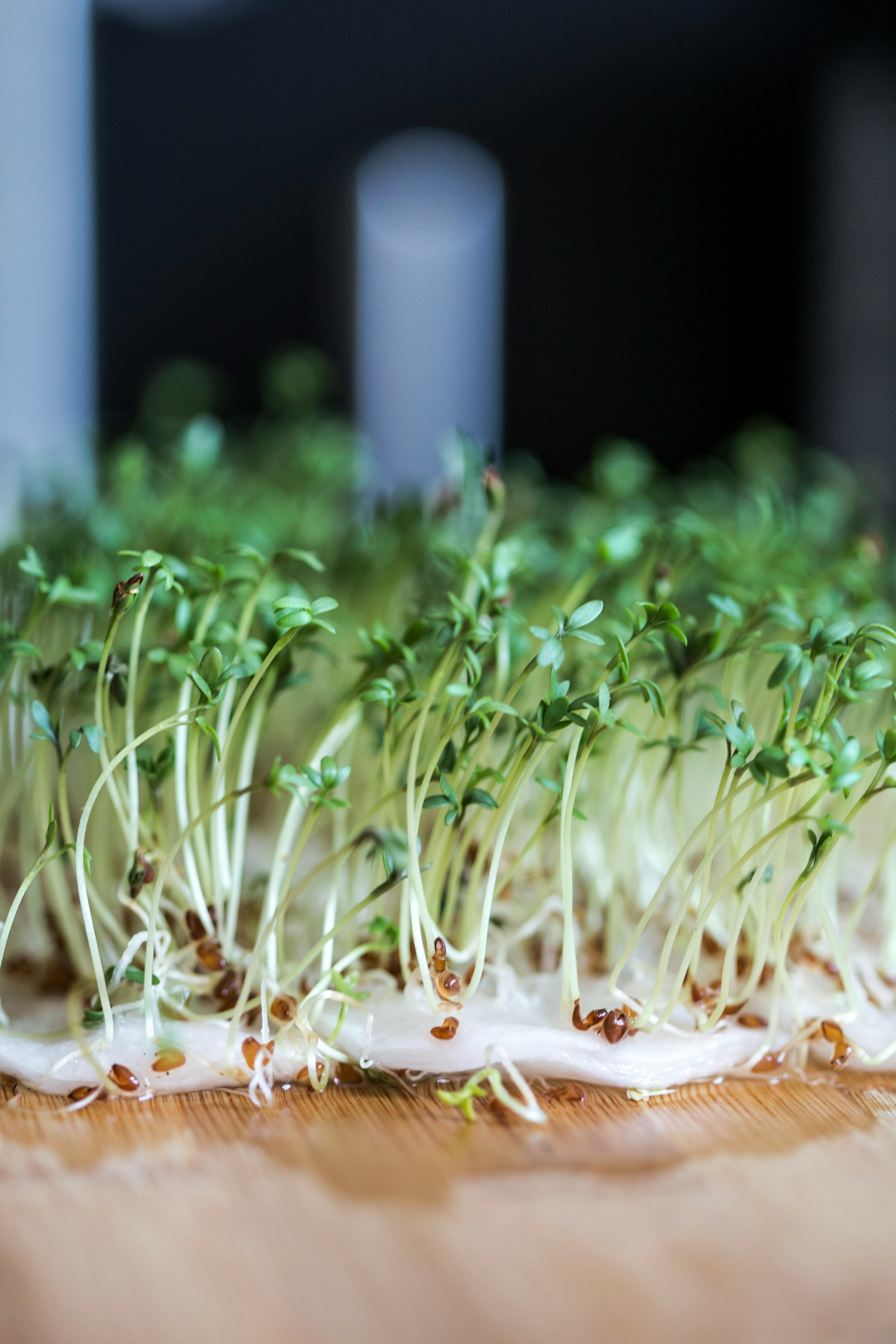If you’re here, chances are you’re somewhere in the thick of new motherhood—maybe you’re holding a sleepy baby in one arm while searching for ways to keep up with their growing appetite. Perhaps you’ve heard someone mention alfalfa as a way to make more milk while breastfeeding, and you’re wondering if it’s actually worth trying. You’re not alone.
This article is here to give you guidance on alfalfa and breastfeeding—what it is, what it might do for your milk supply, and what the science really says.
What Is Alfalfa and Why Do Moms Use It for Breastfeeding?
Alfalfa, or Medicago sativa, is a nutrient-rich herb from the pea family. It’s been used for centuries in traditional medicine and is often referred to as the “father of all foods,” thanks to its dense nutritional profile. It’s packed with vitamins A, C, D, E, and K, along with folic acid, iron, calcium, magnesium, and several B vitamins.
Historically, it was used by civilizations like the Chinese and Russians as both food and natural remedy. Native Americans and early herbalists valued it for its ability to support appetite, digestion, and recovery from illness. In agriculture, it was praised for enriching soil and used as nutrient-dense animal feed.
Today, alfalfa is cultivated widely in the U.S. and often appears in herbal teas and supplements marketed to breastfeeding moms. It’s considered a galactagogue—a food or herb believed to help increase milk supply—mostly because it contains phytoestrogens, plant compounds that mimic the hormone estrogen.

Alfalfa and Breastfeeding: What the Science Really Says
Due to its high levels of vitamins and minerals, some naturopathic sources suggest that alfalfa may support not only milk supply but also breast milk quality.
Alfalfa contains plant-based phytoestrogens, which are much weaker than human estrogen. Estrogen plays a more indirect role, mostly supporting the growth of breast tissue during pregnancy. Some believe they may offer a gentle hormonal nudge.
In animal studies, alfalfa has also been shown to increase levels of prolactin — the hormone that drives milk production.
Some women do feel they see improvements after adding alfalfa to their routine.
Keep in mind that herbs can’t replace the basics: frequent feeding, proper latch, skin-to-skin contact, and rest.
How to Safely Use Alfalfa While Breastfeeding
If you decide to give alfalfa a try, there are several ways to incorporate it into your routine. Just be sure to start small, track how you feel, and check in with your lactation consultant or healthcare provider before making it a daily habit.
Here are the most common forms of alfalfa to take while breastfeeding:

- Alfalfa sprouts: Mild, pea-like flavor. Add to salads, soups, sandwiches. Always wash well or grow your own to avoid foodborne illness like E. coli or salmonella.
- Alfalfa tea: Made from dried leaves. Steep 1–2 tsp in boiling water for 10–15 minutes. You can drink up to 3 cups a day. Bitterness can be balanced with honey or lemon.
- Alfalfa powder: Dried and ground leaves can be sprinkled into smoothies, soups, or casseroles.
- Alfalfa capsules: Often the most convenient method. Dosages vary by brand, but a common starting point is 2–4 capsules, 3–4 times per day. Always follow package instructions unless advised otherwise by your provider.
- Alfalfa tincture: A liquid herbal extract. A typical dose is 4ml (around one dropperful) up to four times a day.
You can also combine alfalfa with other galactagogues like fenugreek, fennel, or blessed thistle for a blended effect. Many “lactation” supplements do just that.
Who Should Not Use Alfalfa
While alfalfa is generally safe in food amounts, not everyone should take it in supplement form—especially during breastfeeding.
You should avoid or be cautious with alfalfa if:
- You have an autoimmune condition such as lupus, rheumatoid arthritis, or multiple sclerosis—it may overstimulate the immune system.
- You’ve been diagnosed with hormone-sensitive conditions, including ovarian cancer, endometriosis, uterine fibroids, or breast cancer.
- You’re taking blood thinners, since alfalfa is high in vitamin K and may interfere with medications.
- You’re prone to oversupply or engorgement—excessive stimulation could make symptoms worse.
Always talk to your provider before taking alflafa while breastfeeding, especially if you have a medical condition or take daily medications.
Side Effects and When to Stop
Most people tolerate alfalfa well in small amounts, but side effects can happen—especially if you take too much or use it for long periods.
Possible side effects:
- Gas or bloating
- Diarrhea (especially if used in large amounts)
- Breast engorgement or plugged ducts if you already produce plenty of milk
If your baby develops diarrhea or gassiness after you start taking alfalfa while breastfeeding, it’s a good idea to stop and see if symptoms improve. Wait until everything settles before reintroducing it at a lower dose.
Also worth noting: Commercial alfalfa sprouts have a higher risk of contamination. If you love sprouts, consider growing your own with a simple kitchen sprouting kit.
Final Thoughts
Trying to keep up with your baby’s needs can feel overwhelming, especially when supply questions creep in.
Start with the lowest possible dose. Track how you and your baby respond. Combine it with solid feeding practices, and don’t hesitate to pause if anything feels off. Herbs like alfalfa can be part of your breastfeeding toolbox, but they’re not the whole solution.
If you’re unsure whether your supply is actually low, check out this article or consult a lactation consultant to rule out issues like poor latch, baby’s weight gain, or feeding frequency.
Be kind to yourself. Whether alfalfa ends up being part of your plan or not, you’re showing up. And that counts for so much more than any supplement ever could.
Resources
- Find a breastfeeding support group near you.
- Milkology Breastfeeding Class – Affordable, video-based online course to help you master breastfeeding at your own pace.
References
- Oral Galactagogues for Increasing Breast Milk Production in Non-Hospitalised Term Infants – Systematic Review.
- Alfalfa – Drugs and Lactation Database (LactMed) – Publisher: Safety profile during lactation, lack of human studies, concerns for autoimmune conditions.
- Herbal Lactation Support – American Association of Naturopathic Medical Colleges (AANMC). Traditional use of alfalfa, possible support for milk quantity and quality, and naturopathic perspective.
- Ethnopharmacology of Botanical Galactagogues and Scientific Evidence Gaps. Historical use of alfalfa, analysis of gaps between traditional and scientific knowledge, and phytochemical profile.


